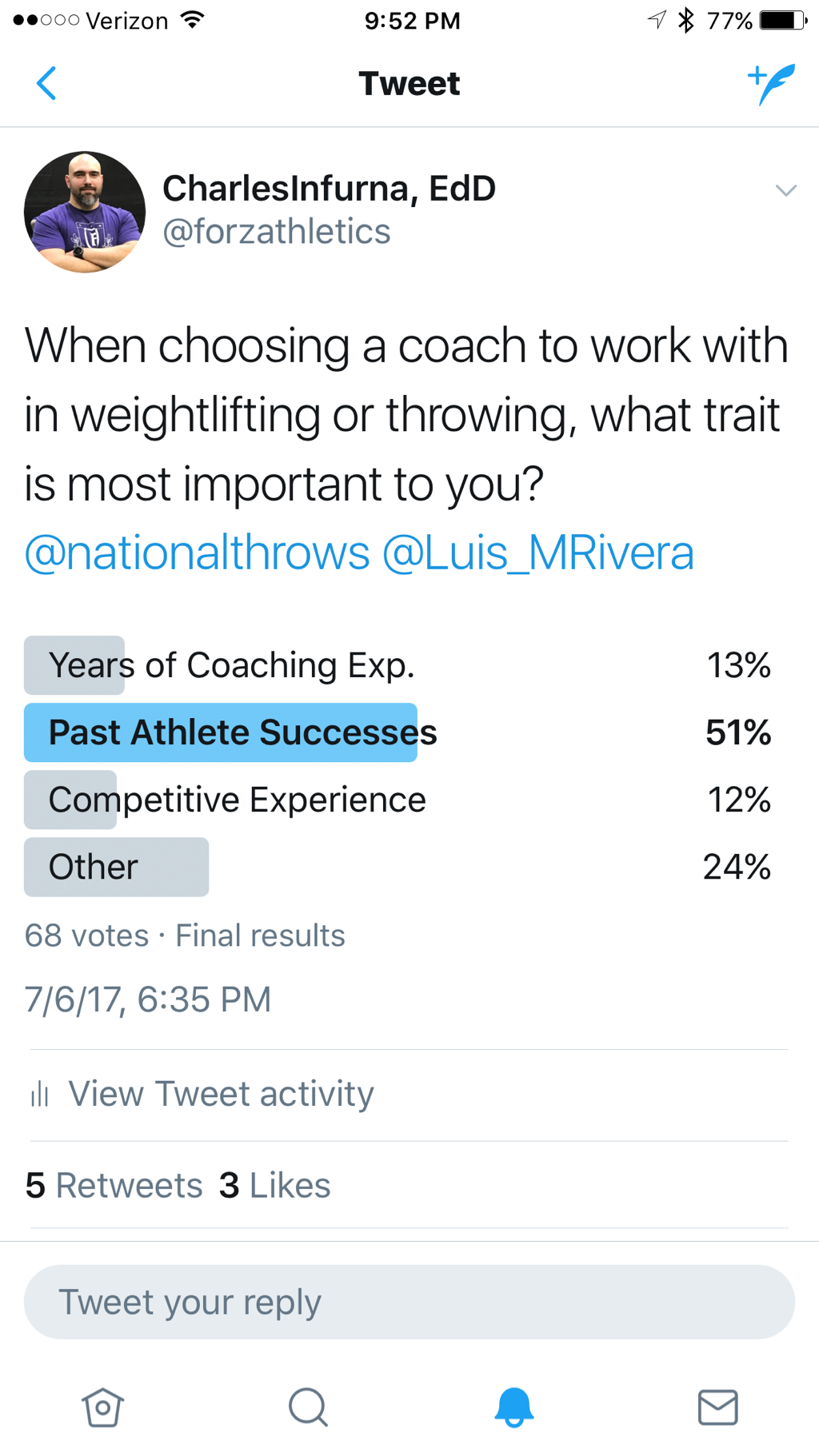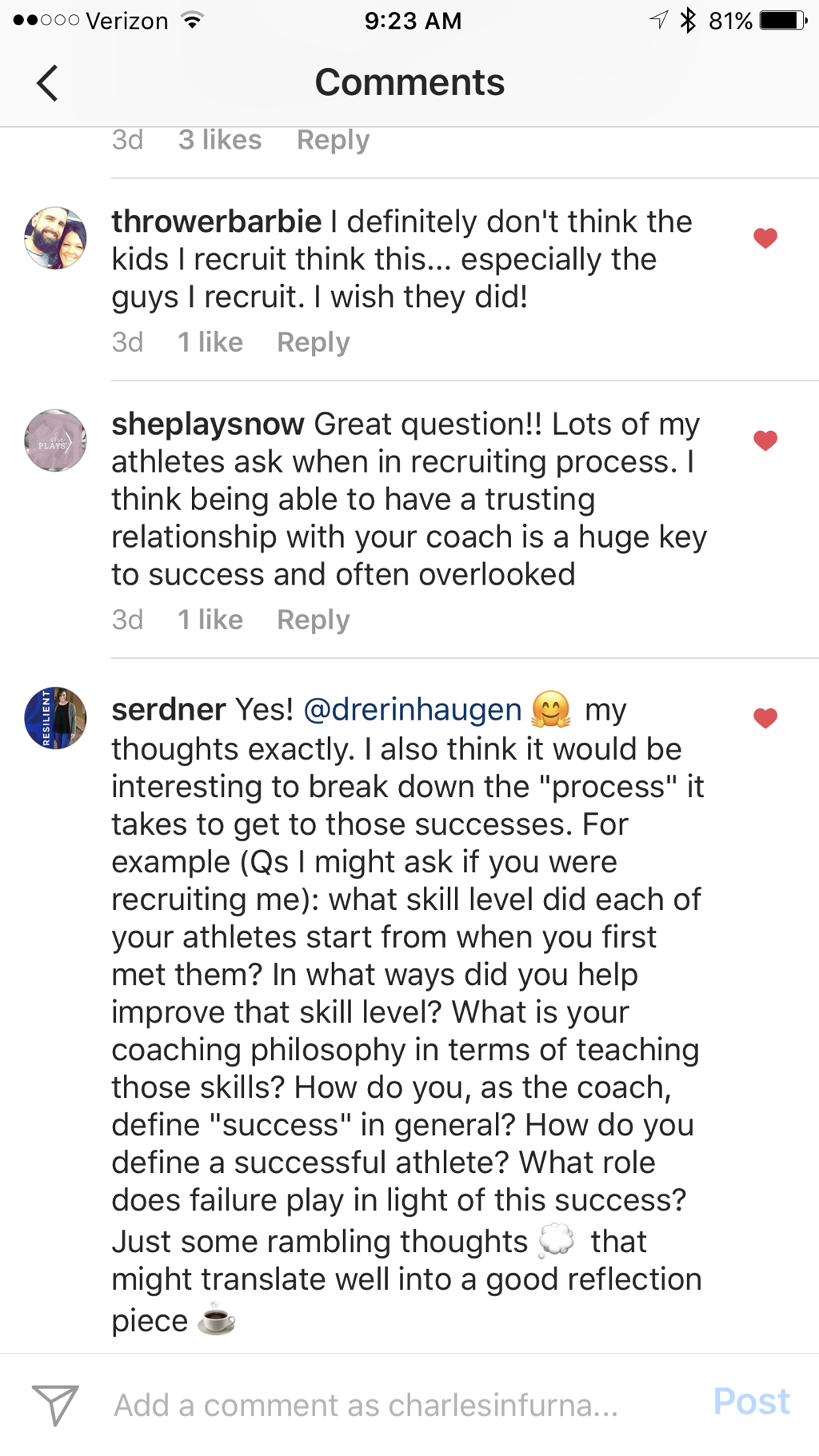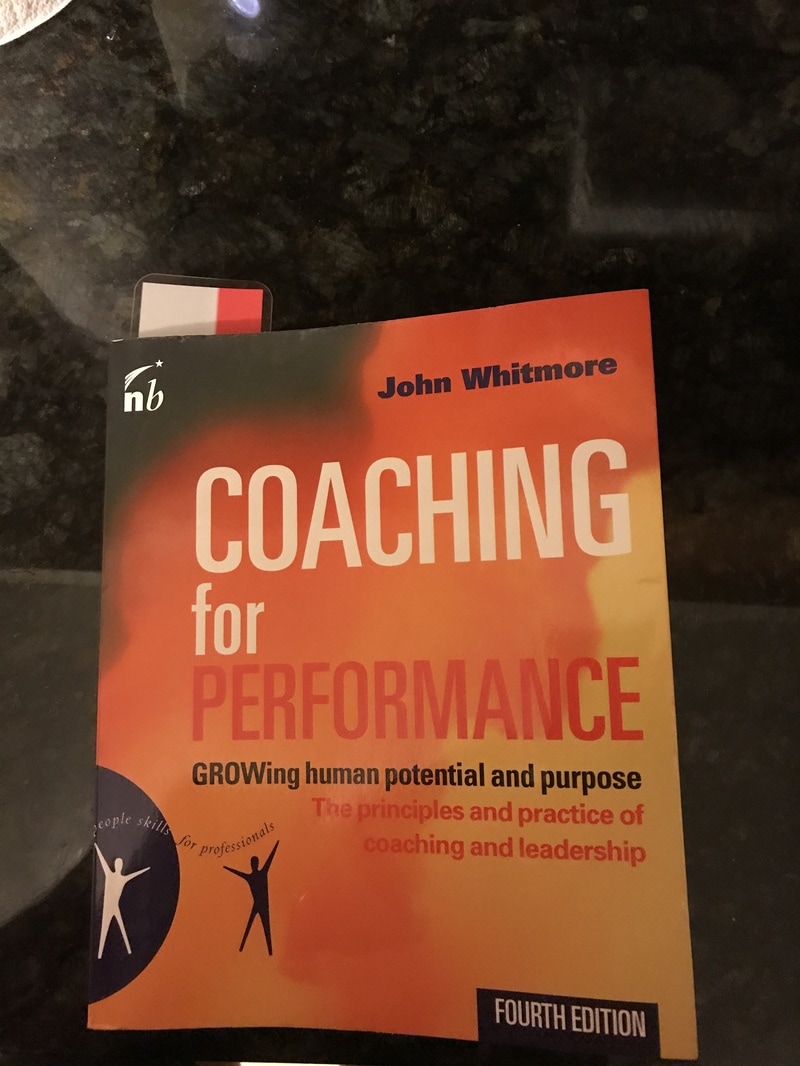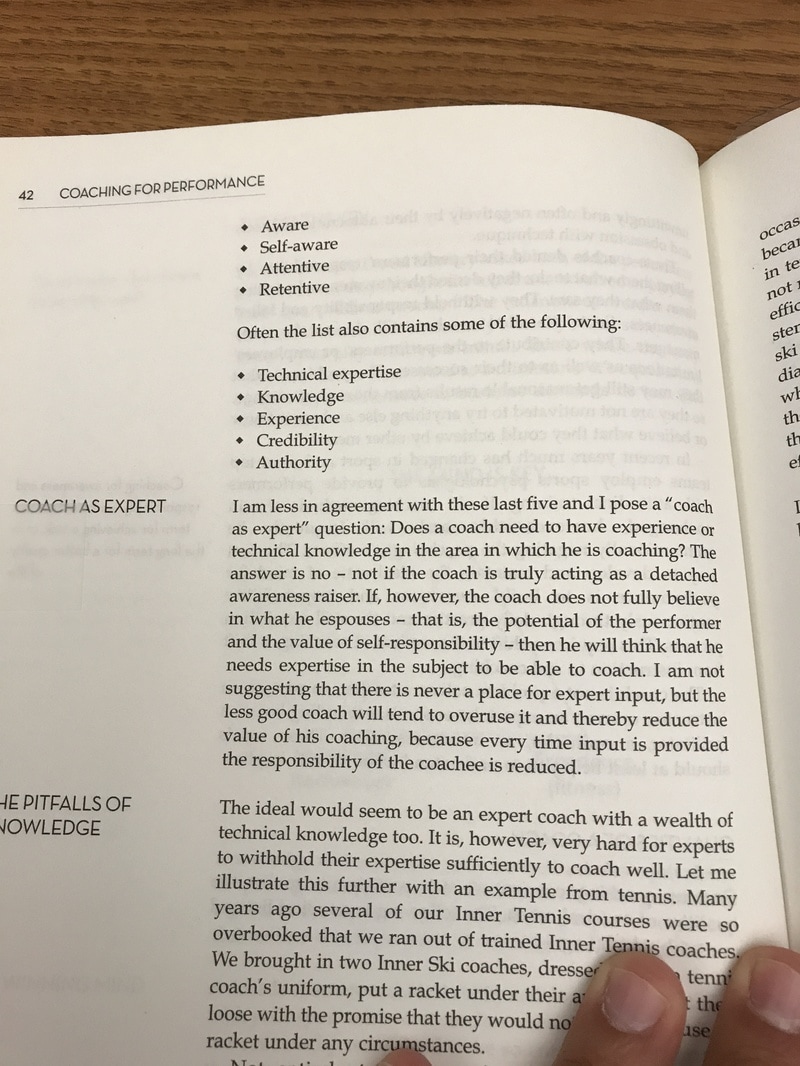|
I took to Twitter the other day and asked what type of content people would like to learn more about or hear more about with our Forza Athletics Podcast. One of the topics that came up multiple times was recruiting. Nothing specific, but just recruiting. With that in mind, below you will find my five things to consider when deciding what college to attend. Our example will be for a high school senior that will be assured a full-athletic scholarship in which tuition, room, board, and meals will all be included. For the sake of this example, we know that finances will not play a role in the decision-making process because you will be assured that all expenses will be paid. This is hypothetical, but please play along for the example. -Note, These are in no Particular Order- 1. Current Coaching Situation
2. “Feel” of the Location
3. Major
4. Team Atmosphere
5. Other—Everything that may play a role for some or for none at all
What did I miss?
As always, thanks for reading! ~Charles
0 Comments
Continuing with our conversation from last week, the researcher in me wanted to further explore the notion of coaches as experts. Rather than guess what athletes might say about the topic, I asked them. I took to Twitter to ask athletes what they thought was most important when considering to work with a weightlifting and/or throwing coach. Below you will see the four options with the percent of votes per option. I’ve been thinking about these results for the past couple of days. Only half of the voters selected the second option of the most important trait in selecting a weightlifting and/or throwing coach was past athlete successes. I was a little taken aback by these results. My guess would have been that more than just half of the votes would have gone to this option. A couple of thoughts with this result:
When I wrote the option of past athlete successes, my thought process was that of accomplishments in either weightlifting and throwing. For example, past athlete successes as a trait when hiring an Olympic weightlifting coach, to me means someone who has coached individuals that have previously (within the past three years) qualified for the American Open, USA Championships, and Olympic Trials. I realize that there are more national championships for Olympic weightlifting, however at my age I would only be eligible to qualify for the three I listed above. For a 10 or 11 year-old youth athlete, many more opportunities exist for competing at the national level, therefore the athlete and their family may not be as concerned with hiring an Olympic weightlifting coach that has coached XX number of athletes that have previously qualified for the Olympic Trials or USA Open Championships. Depending on where they live, there may not be a coach that fits that criteria for hundreds of miles. Virtually, however is an option that I will discuss in a later blog post. Continuing with my example, at my age (35) I would be most interested in hiring an Olympic weightlifting coach that has worked with other lifters my age-in which those other lifters competed in the American Open, Masters Nationals, and even possibly the USA Championships. At my age, the Olympic Trials would totally be out of the question. For a youth athlete, however, a coach who may have already coached youth athletes to the youth nationals may qualify and meet the definition of “success”. Ultimately I think it would depend on what the athlete’s goals are, what the family goals are, and what their reality and expectations are in achieving those goals. Similarly, I don’t think a coach needs lots of years of experience or prior athletic success in order to be a successful coach themselves. Some coaches I know have very limited years of experience, yet they have coached multiple athletes to All-American status in the throws at the Division II and Division III level. I myself had very limited success as an athlete at the Division III level (1 conference championship in the Hammer throw). One of my first athletes I coached at Fredonia had somewhat limited success at the collegiate level, and now is one of the most prominent throwing coaches at the Division II level. He is dedicated to the craft of coaching, is open to learning from others, is a student of throwing, and has invested time in traveling around North America to learn from Olympic and Pan-American Medalist Hammer throwers. Even more surprising than the votes garnered by option two were the results of option 4, “other”. I thought about adding a fourth option about relationship development/comfort/personality, but I didn’t want to try and get everything else into that option. With a quarter of the votes going to this option, I may consider conducting another Twitter poll that is made up of those traits/qualities listed above. A researcher in the field of athlete self-efficacy and resiliency that is currently working on her dissertation posted a great comment on my Instagram page the other day about questions she would ask if being recruited at the collegiate level. You can see her questions below. I wish I would have asked those questions when I was 18 years old when trying to decide which college to attend. I selected SUNY Fredonia for a couple of reasons—one of which was that SUNY Fredonia had won over 30 conference championships between 1976 and 2000 in combined indoor and outdoor competitions. I didn’t ask those questions when I was trying to select between my college options. I wish I would have.
Besides the questions Sara listed above, what questions would you want to ask on a recruiting trip? For the coaches out there, how would you answer the questions listed above? Will your answers vary depending on what level you are coaching (Division I, or Division II, or Division III)? Should your answers vary? As always, thanks for reading ~ Charles Last week I started reading a series of articles on my desk about coaching mental toughness in athletes. A wide range and variety of articles published in peer reviewed journals by some of the most respected and brilliant sports psychologists and researchers in the world. One of the articles that was sent to me by a friend was recently published in 2017, and spoke about a business coaching methodology and framework reformatted to be implemented with a group of elite level soccer coaches and their athletes. The focus of the study was to teach elite level soccer coaches in Europe a variety of ways to introduce and help develop the mental toughness of their athletes. The methodology implemented in the study was adapted from the business model developed by John Whitmore, from his book titled Coaching for Performance: GROWing human potential and purpose, the principals and practice of coaching and leadership, 4th edition. I immediately ordered the book because the coaching framework makes a lot of sense to me. I’m always interested in learning more about how business models of coaching individuals and teams are applied to the sports world, especially for research. However, one brief section in the book caught my attention. On page 42, John wrote a very concise paragraph about the coach as an expert. One sentence in particular struck me, and I have been thinking about it since I read it. John wrote, “Does a coach need to have experience or technical knowledge in the area in which he is coaching?” Over the next couple of weeks I’m going to spend some time digging down and really reflecting on the notion of coaches as experts in their specific fields of instruction. How much, if any, does prior competitive throwing experience really matter in the eyes of potential recruits and athletes at the collegiate and post-collegiate level? For example, would a Division I recruit not attend a specific college or university because their event specific throwing coach never threw in college? Would that same recruit commit to a college if they knew their throwing coach never threw, but had already coached XX All-Americans and X National Champions? So, for those of you that are still reading, I pose a question: From the perspective of a competitive thrower, to what capacity, if any, would you feel comfortable being coached by someone with no prior experience as a thrower and little to no technical background knowledge in the shot-put, discus, hammer, weight throw, and javelin? How much does prior competitive experience really matter in the eyes of high school, collegiate, and post-collegiate athletes? Stay tuned for Part 2 of this series. As always, thanks for reading-Charles
|
Dr. Charles InfurnaCharles Infurna, Ed.D., is the owner and lead coach of Forza Athletics Track Club. Dr. Infurna has coached National Record Holders, National Champions, All-Americans, and Conference Champions at the Post-Collegiate, Collegiate, and High School level. Archives
January 2023
Categories |





 RSS Feed
RSS Feed